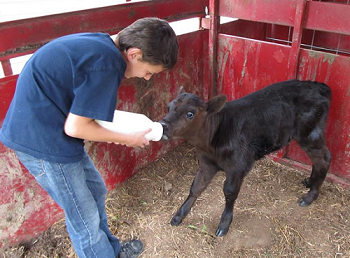I know everyone has literally been on pins and needles awaiting this decision, and heading into the long Labor Day weekend, the USDA quietly announced that, soon, you too can enjoy Chinese processed chicken! From chicken noodle soup to chicken nuggets, cooked, processed chicken from China will soon begin making its way to your pantry and dinner plate.
All satire aside, I'm taking my AchooAllergy.com hat off for this post. As someone who grew up on a farm and regularly brings back our farm raised beef when I travel home, this topic strikes a nerve with me. So, in terms of full disclosure, the opinions expressed here are my own, not those of AchooAllergy.com.
With that out of the way, the news is that the USDA recently announced it was lifting the ban on imported, processed chicken from China, and for me, this raised a few questions.
_First, why announce it right before a long holiday weekend? Having some experience with public relations and press releases, this answer is fairly obvious. If you ever want to release something but do not want people to notice it, you put information out on a Friday. If you REALLY don't want people to take notice, release it on a Friday before a holiday weekend.
_But why would you want people to not notice the lifting of this ban? I'm just guessing but I would say there are at least three reasons that might be cause to quietly make this announcement. Does anyone remember the story about the thousands of dead pigs found floating in the Huangpu River? Over TEN THOUSAND dead pigs were fished out of this Chinese river last spring, and annually approximately 150,000 to 300,000 pigs die that need to be disposed. Currently China has shown itself ill-equipped to regulate and dispose of these animals in a humane and hygienic manner, which is somewhat evident by the story of Chinese officials breaking up rings that buy, process and sell dead (often from disease) pigs in China. In case you need a refresher on the ‘dead pig pool party’ and it's annual impact.
_ Shortly after this, a news story broke about ‘rat mutton’. Over 22 tons of inferior or fake meat products were confiscated by Chinese officials. Including rat, fox and mink, this meat were passed off as something other than what they really were.
Shortly after this, a news story broke about ‘rat mutton’. Over 22 tons of inferior or fake meat products were confiscated by Chinese officials. Including rat, fox and mink, this meat were passed off as something other than what they really were.
_Lastly, bird flu. This story is one we all are likely more familiar with, but avian flu is a persistent problem with poultry in China. And while poultry sickness is nothing new, it passing to humans is something that has become more common over the last few years. Like other forms of the flu, strains of the avian flu are deadly and relatively less is known about these strains over more traditional strains of the flu. Recently, the H7N9 strain has shown a resistance to the popular antiviral drug, Tamiflu.
_Those seem to be three fairly compelling reasons to quietly announce the story about lifting the ban on Chinese poultry imports. But, if you'd like another instance, you can visit the FDA website and peruse reports of Chinese made dog treats (made with chicken) sickening pets all across the U.S. The most recent case involved over 2500 dogs being sickened and around 500 dogs dying from the later recalled treats.
_Initially, the imported meat will be from chickens raised in the US and Canada. This is why the USDA has opted NOT to keep inspectors on staff at the processing plants. So while inspectors gave the thumbs up to Chinese producers this spring, there will be no USDA inspectors on hand for when production of the soon-to-be imported chicken actually begins. On a related note, in an effort to reduce cost, the USDA is experimenting with eliminating USDA inspectors here in U.S. poultry plants. Instead they are opting to have private businesses inspect themselves. While this could speed up production, GAO (Government Accountability Office) auditors found the USDA used antiquated data in crafting these new proposed inspection procedures.
_ As additional cause for concern, initially the poultry will originate in the U.S. and Canada, and as such, this processed chicken from Chinese plants will not have to be disclosed on the labeling. So unlike the dried apricots on my desk that conveniently say, ‘Product of Turkey’, no such disclosure will have to be made in this case.
As additional cause for concern, initially the poultry will originate in the U.S. and Canada, and as such, this processed chicken from Chinese plants will not have to be disclosed on the labeling. So unlike the dried apricots on my desk that conveniently say, ‘Product of Turkey’, no such disclosure will have to be made in this case.
_I realize that to some, this all may sound a bit xenophobic, but as I have suggested with the examples above, there is legitimate concern. As consumers, we have faith that the products we buy are true as presented, but cases like this highlight the subtle yet real ways information is not disclosed or at the very least, disclosed in a manner to draw as little attention as possible.
_To read more about the lifting of the ban.
_Author: K. Gilmore
